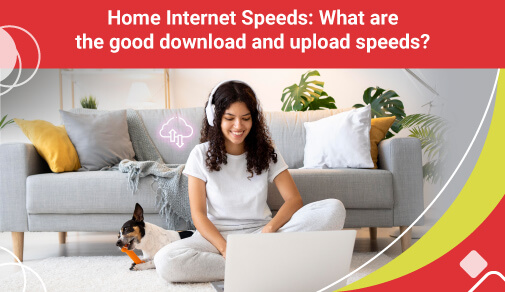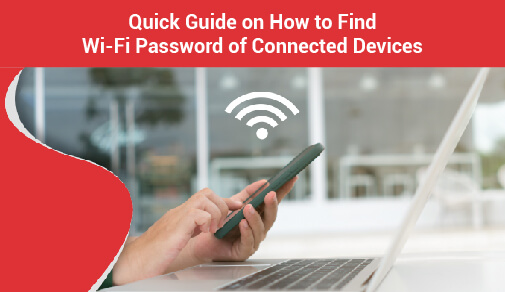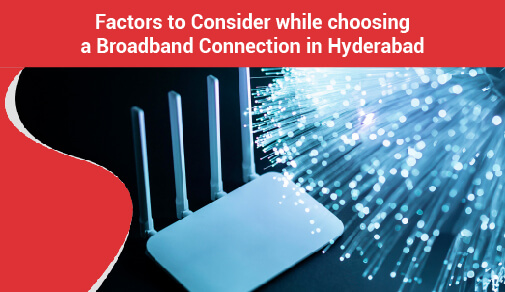Home Internet Speeds
-
0
-
-
5 minutes

Internet services are all about speed you get. With the intricate details of megabits per second (Mbps), gigabit, fiber, and broadband, it's rather easy to get overwhelmed. Which is why we've made this internet speed guide to all that you need to know about internet speeds.
If internet speeds confuse you, you are not alone. We will try and help you answer the following queries for you.
● What is internet speed?
● How does internet speed work?
● What is the difference between upload and download speeds?
● What affects my internet speed?
Internet speed is your allocated bandwidth based on your internet plan. Bandwidth is the amount of data that can be used by you, measured in seconds. For example, 10 Mbps would mean that you can receive or send up to 10 megabits of data per second.
Internet Speed Tests
If you've ever checked your broadband internet speed it is likely that you've used the Ookla Speed Test. Ookla's Net Index takes the information from Speedtest.net and organises it, making it easy to consume.
Click the “Go to my location“ link and you'll be redirected to a page listing all the ISPs that are available in your area. You can also look up a specific city. The ISPs are ranked on the basis of recent Speedtest.net download speed results of their subscribers. Here, you can see which internet service providers are actually the fastest. Ookla's speed test also allows you to compare average Internet speeds between different countries, regions, and even cities for you to understand various speeds across locations. You can check the rankings based on upload speeds, connection quality, value for the price.
Upload speed vs Download speed
Most reliable speed test providers measure and report three important high speed internet metrics: upload speed, download speed, ping and latency.
Download Speed: Download speed can be measured by the number of megabits you consume per second to receive data such as images, video files, etc. Activities like listening to audio online, receiving an email, streaming on services like Netflix or Prime video can be considered as downloading. Usually, a download speed of 25Mbps is considered ideal for streaming videos, engaging on video calls, etc.
Upload speed : Upload speed is referred to as the number of megabits of data you can send to another device over your high speed internet connection. Though downloading is more widely known and understood, uploading data is the opposite of downloading. It can be simply understood as sending an email, playing a video game, etc. When people see your video calls blurred, it can be understood that there is an issue with your upload speed. Usually, upload speeds of 3Mbps are considered to be good enough for work from home, video calling, etc.
Ping : A ping is a request sent to a server requesting a response. The server sends back a response in a single packet, if available. This transaction is calculated in milliseconds. The ping time is the amount of time taken by the request to circle back with a response to the device. Ping tests are more commonly used by gamers to understand the amount of time it took for them to hit a host with a request and get a response. Higher the ping time, more the data transfer delays you are bound to experience.
Jitter: Technically a jitter is a variance in the latency experienced. For example, you may usually get a latency of 20ms on the server you are playing on. You might get spikes of 70ms or even 220ms, before it drops back to 20ms. Anything under 100ms is considered as acceptable latency to game on, however, latency under 25ms is preferred by most gamers.
What is considered good internet speed?
The amount of data a link can download (download speeds) or upload (upload speeds) per second determines its internet speed. Internet speeds in the kbps range are considered 'slow,' whereas Gbps speeds, which are less common but becoming more common, are considered 'ultra-fast.'
● Netflix says that users require a minimum of 10 Mbps to stream full HD content and 25 Mbps for 4K Ultra HD content, however you should opt for faster speeds if you want to connect multiple devices at once. This holds true for other streaming services and gaming services like YouTube and Twitch.
● Also note that multiple devices require more bandwidth. If you're planning to stream 4K video content and have multiple devices connecting to your network at the same time, you should consider investing in faster download speeds, for example 200 Mbps, which works for most users.
● You can also opt for Gigabit connections if your internet usage demands more bandwidth.
Good Download Speeds
So, what are considered good download speeds for your home internet? The recommended download speed for most online activities is around 25 Mbps per user and device. This speed should be sufficient for activities like streaming videos in high definition, video conferencing, and online gaming. If you have multiple people in your household who are using the internet simultaneously, you may want to consider a faster download speed to ensure everyone can enjoy a seamless online experience. For households with heavy internet users or those who stream 4K videos, speeds of 100 Mbps or higher are recommended.
Good Upload Speeds
When it comes to upload speeds, the ideal speed can vary depending on your online activities. The recommended upload speed for most households is around 10 Mbps per user per device. This speed is sufficient for tasks like video conferencing, uploading photos, and sending emails with attachments.
However, if you frequently upload large files, participate in video conferencing with multiple participants, or are a content creator who uploads videos to platforms like YouTube, you may want to consider faster upload speeds. Upload speeds of 50 Mbps or higher are recommended for these types of activities.
Conclusion
In conclusion, having good internet speeds is essential for a seamless online experience. For most households, download speeds of 25 Mbps and upload speeds of 3 Mbps are considered good for everyday online activities. However, it's essential to consider your specific needs and the number of people using the internet when selecting an internet plan. By choosing the right speeds for your household, you can enjoy faster and smoother online experiences.
So, why wait? Upgrade your internet speeds today and say goodbye to slow connections and buffering issues!







